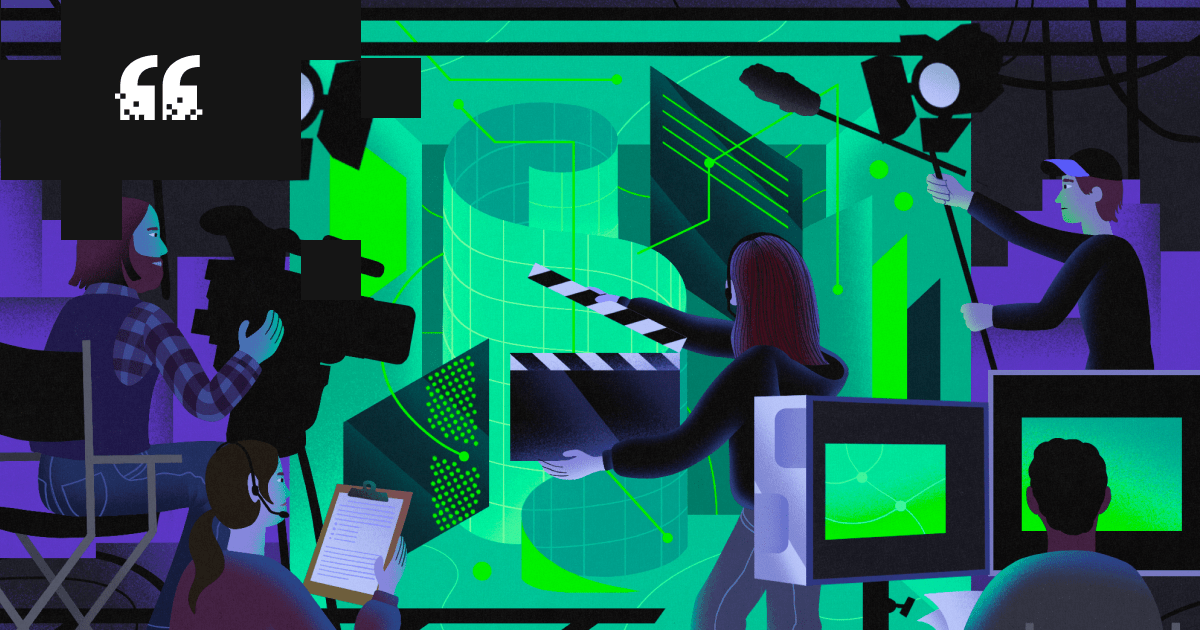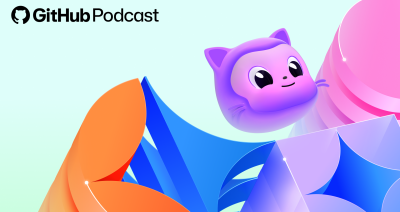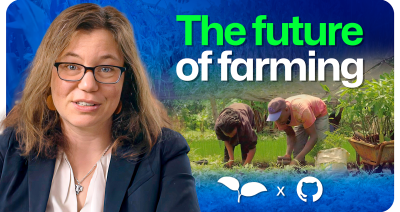Bridging code and community
Explore the impact of non-code contributions—and why they are often undervalued, the challenges of using open source in regulated environments, and the art of managing projects at the scale of Kubernetes, now on The ReadME Podcast.

Subscribe to The ReadME Podcast on Apple Podcasts, Spotify, or wherever you listen to podcasts.
“People often speak dismissively of pull requests that fix a typo or a broken link. But the friction caused by these issues distracts from the intent of your project,” says Sarah Rainsberger. “There are so many ways to contribute to the overall experience of the people using your project that don’t involve code. These improvements help people enjoy using your project.”
The ReadME Podcast’s June episode explores the value of non-code contributions—and why they are often undervalued, the challenges of using open source in regulated environments, and the art of managing projects at the scale of Kubernetes. Our first guest, Kyler Middleton, joins to talk about her journey in technology from farming to pharmaceuticals, the pivotal role of Terraform in facilitating infrastructure sharing, and the myth that contributing to open source means compromising your organization’s security.
Later on, senior editor of The ReadME Project, Klint Finley, is back on the podcast to shed light on the crucial yet often under-appreciated non-code contributions to open source projects. He highlights the pivotal roles that technical writers, community managers, marketers, release coordinators, and graphic designers—among many others—play in shaping the success of a project. Featuring insights from Sarah Rainesberger, a core contributor to the Astro web UI framework, this conversation underscores the importance of improved documentation and embracing community support.
Plus, hear more from our conversation with Kelsey Hightower, about the complexity of scaling projects like Kubernetes (hint, it’s not just the code).
| Bridging code and community | Navigating open source in a regulated environment, the crucial role of non-code contributions to open source success, and lessons from scaling projects like Kubernetes. |
| Kelsey Hightower—Present | In this special episode, Kelsey shares his origin story, insights on the future of Kubernetes, and advice on making complicated technology easier to understand. |
| The open/closed equilibrium | Striking a balance between openness and control in open source projects, preserving the integrity of community insights, and how humor can transform communities. |
| Fusing tech and progress | How open source is powering nuclear fusion research, advice for fortifying your career against change, and practical tips on using GitHub. |
To hear all this, and more, tune in to this month’s episode of The ReadME Podcast. Plus, join us next month when we will be discussing shifts in programming language paradigms and what happens when the pendulum swings too far. Don’t miss out! Subscribe to The ReadME Podcast now on Apple Podcasts, Spotify, or wherever you listen to podcasts.
Tags:
Written by
Related posts

From first commits to big ships: Tune into our new open source podcast
Introducing the brand new GitHub Podcast: A show dedicated to the topics, trends, stories, and culture in and around the open source developer community on GitHub.

Scaling for impact: How GitHub Copilot supercharges smallholder farmers
Empowering 10 million farm families by 2030 to generate $1 billion in new revenue. How GitHub helps One Acre Fund’s mission — driving real impact across Africa.

We need a European Sovereign Tech Fund
Open source software is critical infrastructure, but it’s underfunded. With a new feasibility study, GitHub’s developer policy team is building a coalition of policymakers and industry to close the maintenance funding gap.